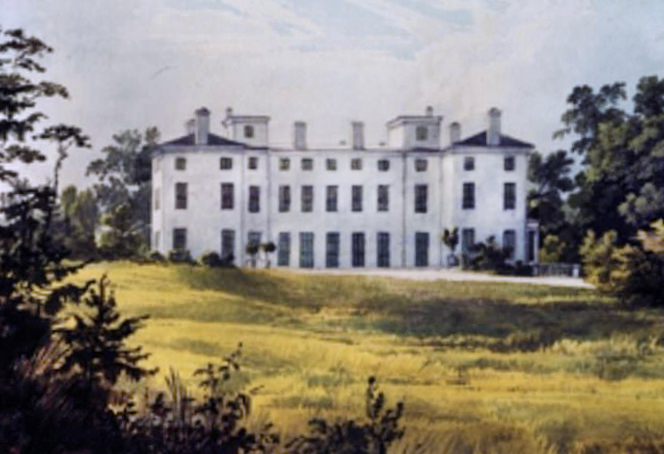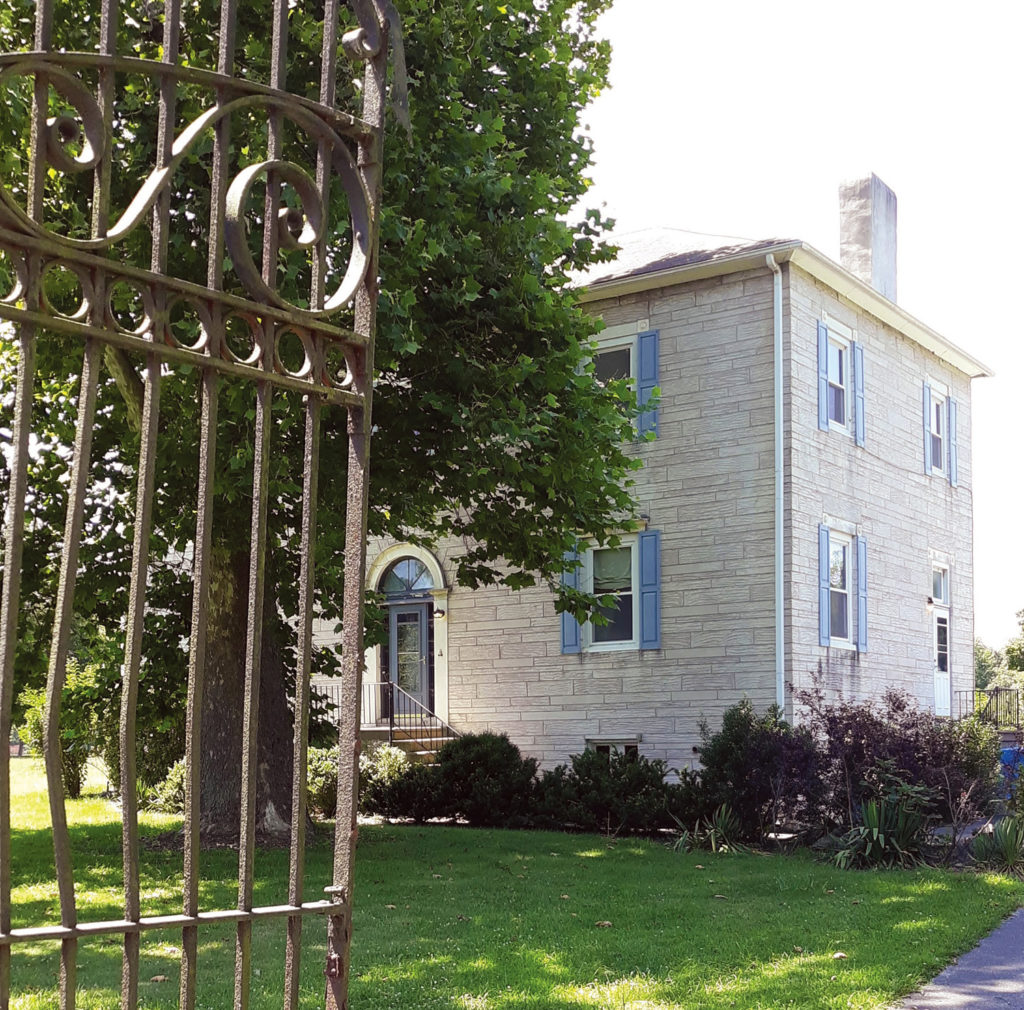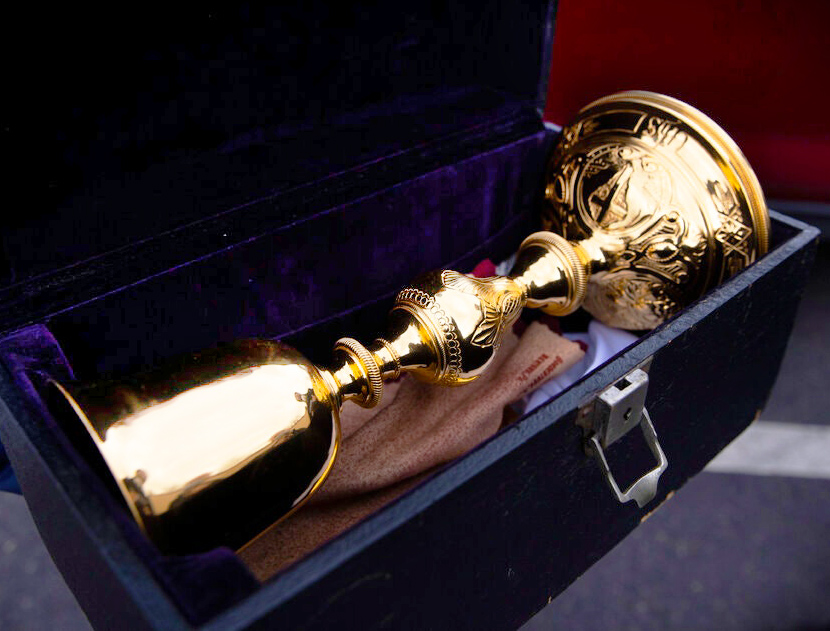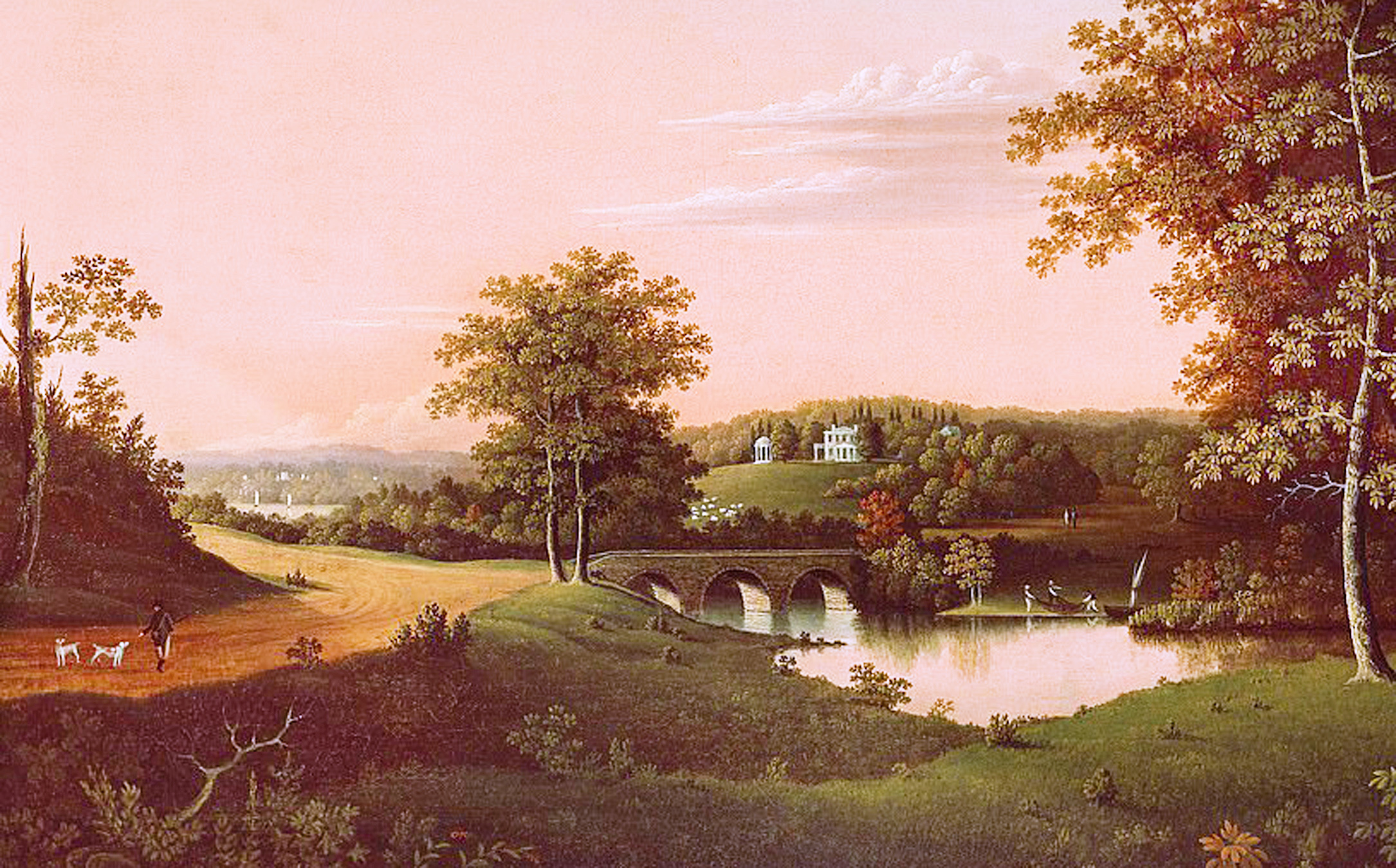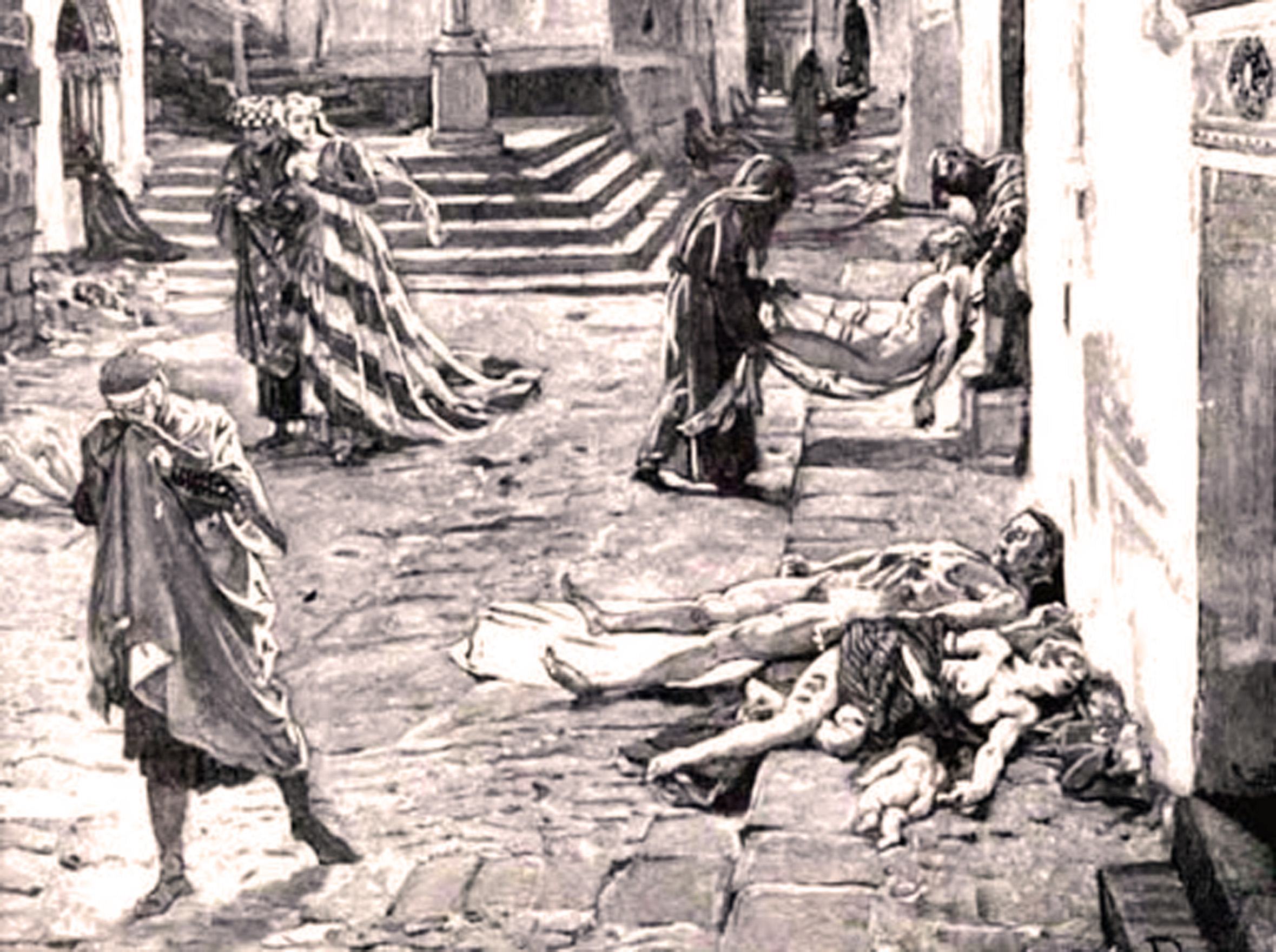New Jersey is known for many things, from stunning beaches and luscious tomatoes, to the birthplace of legendary entertainers, such as Frank Sinatra. However, few realize that the Garden State was once home to Emperor Napoleon Bonaparte’s older brother, Joseph Bonaparte.
Giuseppe di Buonaparte was born in January 1768 to Carlo Buonaparte and Maria Letizia Ramolino Buonaparte at Corte, on the island of Corsica. Both of his parents were of noble families from the Republic of Genoa. Later that same year, the French invaded Corsica, claiming it as their own. The younger Napoleon, born in August 1769 on what was considered French soil, was of course, 100 percent Italian.
Joseph Bonaparte trained as a lawyer and served as a politician and diplomat. When his brother became Emperor of France, Joseph became King of Naples, where he was very popular and later was made King of Spain, where he was not. He abdicated in 1813 and returned to France, bringing a sizable amount of the Spanish crown jewels and a fortune in gold with him. Estimates are in the range of $5 million or roughly $100 million today, but the buying power was actually much greater back then.
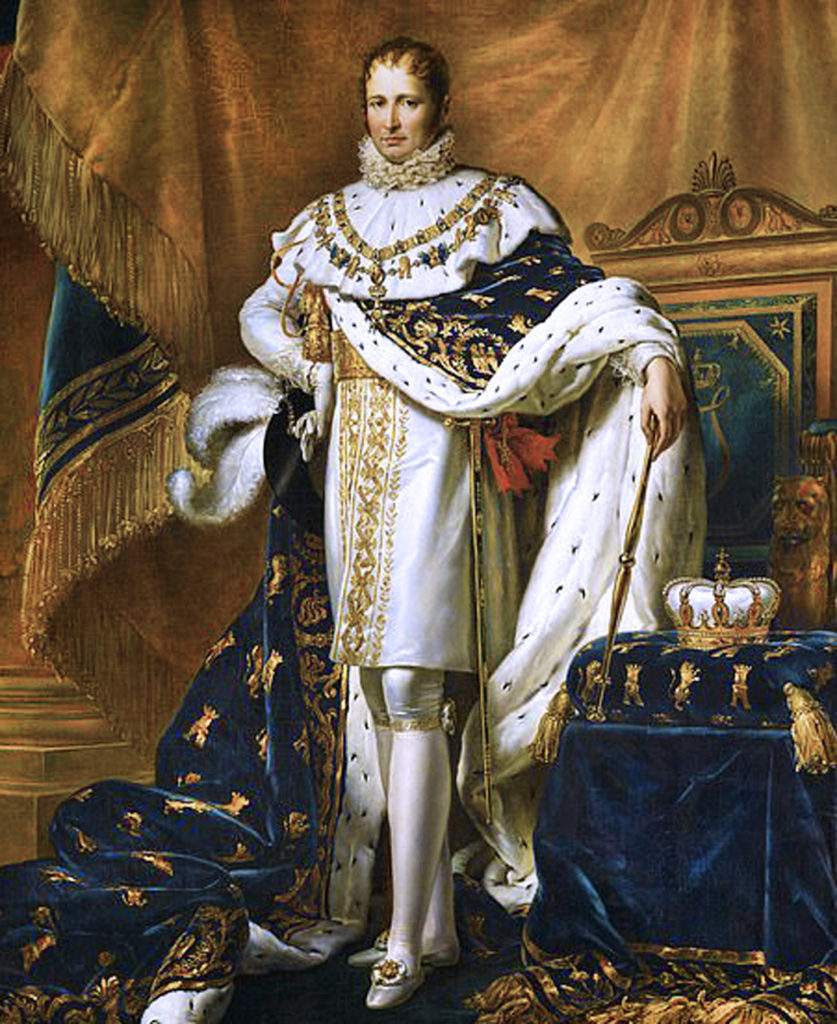
New Jersey is known for many things, from stunning beaches and luscious tomatoes, to the birthplace of legendary entertainers, such as Frank Sinatra. However, few realize that the Garden State was once home to Emperor Napoleon Bonaparte’s older brother, Joseph Bonaparte.
Giuseppe di Buonaparte was born in January 1768 to Carlo Buonaparte and Maria Letizia Ramolino Buonaparte at Corte, on the island of Corsica. Both of his parents were of noble families from the Republic of Genoa. Later that same year, the French invaded Corsica, claiming it as their own. The younger Napoleon, born in August 1769 on what was considered French soil, was of course, 100 percent Italian.
Joseph Bonaparte trained as a lawyer and served as a politician and diplomat. When his brother became Emperor of France, Joseph became King of Naples, where he was very popular and later was made King of Spain, where he was not. He abdicated in 1813 and returned to France, bringing a sizable amount of the Spanish crown jewels and a fortune in gold with him. Estimates are in the range of $5 million or roughly $100 million today, but the buying power was actually much greater back then.
As the political climate in France became extremely hostile to the Bonapartes, Joseph escaped by sailing incognito aboard the American sailing ship “Commerce” to New York. He then proceeded to Philadelphia, where fellow Mason, Henry Clay offered him his hotel suite. For the next two years, as his brother Napoleon languished in exile, Joseph sold Spanish jewels and bought land across the Delaware River in New Jersey, ultimately acquiring an estate of 2,200 acres. Located in between New York City and Philadelphia, the land was about nine miles south of Trenton, New Jersey. He called it Point Breeze and the former King of Naples went by the name Count de Survilliers. But the locals called him Mr. Bonaparte and his estate, Bonaparte’s Park. The main part of the estate was located in an unincorporated borough called Bordentown. It had about 4,000 residents. Two hundred years later, it still has about 4,000 residents, but was incorporated as the City of Bordentown in 1825.
Trees were planted and carriage drives laid out. Sculpture gardens were created and stables built. The centerpiece was the mansion, a substantial house of brick and wood. On January 4, 1820, Bonaparte was returning home from a trip to New York City and found that his home was on fire. The frantic scene had his neighbors attempting to put out the blaze, while others rushed into the house to save his possessions, including paintings and the Spanish crown jewels. The former King had to restrain some of his neighbors from re-entering the house as the fire intensified. Everything removed was presented to Bonaparte, not one item recovered went missing.
The new house that he had constructed was even more extraordinary. It had a library, state-of-the-art dining room and a grand staircase rising up its three levels. Below ground was a vast, well-stocked wine cellar. Its art gallery contained paintings by Leonardo da Vinci, Murillo, Rubens, Rembrandt, Canaletto and Velasquez. A stream on the property was dammed creating a sizable lake on which a causeway and arch were constructed. A building nearby housed Joseph’s daughter Zenaide and her husband, Charles Lucien. The houses were linked by underground passages that also led to escape routes on the grounds. After what had happened in Europe, Joseph took no chances, even though he was quite welcome in his new country.
In 1817, General Mina, the former guerilla leader visited Bonaparte and offered Joseph the crown of Mexico. He refused; the former monarch enjoyed living the life of a country gentleman in New Jersey. He was regularly visited by dignitaries including John Quincy Adams, Daniel Webster and Henry Clay, plus contemporaries from Europe, such as the Marquis de Lafayette. His brother, Napoleon however, was never to set foot on New Jersey soil.
By all accounts, Joseph was a gentle soul who truly loved the land, preferring it to the intrigue and politics that surrounded the crowned heads of Europe. His library contained more than 8,000 volumes, exceeding that of the Library of Congress; his art collection was the finest in the United States and his home, almost 38,000 square feet in size, was said to be the second finest in the country after the White House. He is also reported to have delighted in shocking the sensibilities of the local Quaker ladies by showing them some of the racier paintings and nude statues he acquired as part of his ever expanding art collection.
Though his wife remained behind in Europe, two of his daughters, Zénaïde Laetitia Julie Bonaparte and Charlotte Napoléone Bonaparte lived on the estate for several years. He built a happy and prosperous life for himself at Point Breeze and likely would have stayed there for the rest of his life.
Pandemic of 1347 Changed the World
In 1832, duty called and he left his estate to move to London. Both Napoleon and his brother’s son had died. Although Joseph was forbidden by French law from entering the country, he felt obliged to be close by should the monarchy be restored. It was not and seven years later, he reunited with his wife and family in Florence, where he died in 1844, at the age of 76.
The family’s American presence ended in 1847, when Bonaparte’s grandson, also named Joseph, sold Point Breeze and its contents, including the art collection. A few years later, Henry Beckett, the British Consul in Philadelphia and new owner of Point Breeze, demolished the house and replaced it with an Italianate Villa boasting amenities such as hot and cold running water and gas lighting. That mansion burned to the ground in 1983.
While the mansion of Joseph Bonaparte is long gone, there is one building that remains from the period, the so-called Gardener’s House. Officials from the State of New Jersey and Bordentown recently teamed up with preservationists to purchase a 60-acre plot encompassing the most important portion of the former estate. It will be turned into a public park and preserve Bordentown’s ties to the Bonaparte family and Joseph, the former King of Naples.
The plan is to turn the Gardener’s House into a museum chronicling the history of the land. Attorney, Peter Tucci, 59, is set to provide the bulk of the artifacts for the museum from his personal collection. He has spent a quarter century researching the Bonaparte’s history in New Jersey and amassing items from the estate.
Up until only two month ago, the property had been owned by Divine Word, a Catholic missionary religious order. They took over the land 70 years ago and its priests lived there in semiretirement. It was Tucci who helped come up with the idea of purchasing the land for the town after he met some Divine Word priests who were living at Point Breeze. When he learned that the order was thinking about selling the estate because of upkeep expenses, Tucci approached D&R Greenway Land Trust, Inc., a non-profit organization out of Princeton.
Linda Mead, the trust’s president, then approached city and state officials about coming on board with the purchase. Now that the sale has closed, the property is set to serve as the new heart of Bordentown, with both its city hall and its police station housed in buildings that were erected after the time of the Bonapartes. The new plan will ensure that visitors will always remember when Bordentown had its own royal presence in the form of a quiet man who was the King of Naples.
